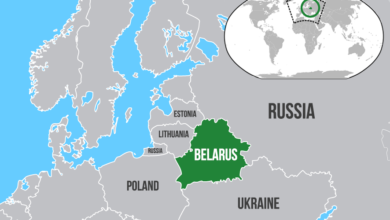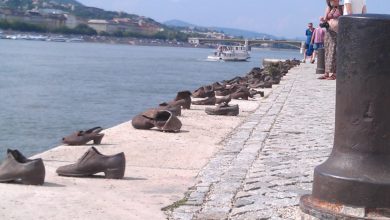Greek farmers have set up roadblocks across the country using tractors and other machinery as part of protests against the Greek government’s and European Union’s anti-farmer policies.
|
Two of the three crossings to Bulgaria were obstructed in the northern border towns; traffic on the country’s main highway was halted at the Nikaia intersection near Larissa and elsewhere in the central region; and the runway of the Heraklion airport was blocked in the southern island of Crete.
The roadblocks mark an escalation of the struggle against the Common Agricultural Policy of the European Union, the policies of the Greek government, plummeting prices and the impacts of the economic crisis.
The CAP aims to reinforce European agribusiness against U.S. and other agribusiness and against the small- and medium-sized European farmers. For Greece in particular, the CAP aims to reduce the percentage of the population that is engaged in farming so that a few wealthy farmers can amass a greater concentration of land. Greek governments, past and present, have all adhered to the CAP.
Following a month of rallies, protests and other actions, the All-Farmers’ Militant Coalition (PASY), which is supported by the Communist Party of Greece, called for roadblocks to be set up across the country.
PASY set up the roadblock in Nikaia on Jan. 19. Soon, many other farmers followed suit, setting up roadblocks on highways, smaller roads and railroads or parking their tractors on highway shoulders as a warning. At least 8,500 tractors across the country have participated in the roadblocks.
New tractors are arriving daily at the roadblocks. Farmers are bringing additional supplies, setting up tents and other accommodations to weather the cold winter nights, and creating spaces where they can discuss tactics. The level of preparedness and organization indicates that they are determined to hold their ground.
Delegates from many roadblocks around the country met and formed a national Coordination Committee to further advance their struggle. It is worth noting that the discontent among the small- and medium- sized farmers is so widespread that even some farmers who are leaders in the governing ND party were forced to participate and set up roadblocks, calculating that may offer an opportunity to divide and derail the struggle.
The farmers are demanding that Greece disengages from the CAP. They further demand payment of withheld state subsidies, guaranteed stable prices, no taxes on diesel, an immediate doubling of their pensions—presently as little as $400 per month for some—and the construction of infrastructure and irrigation projects.
Under increasing pressure, the government has vowed to spend nearly $650 million in support programs. The farmers have stated that the meager sum cannot cover their real needs, noting that the government has not announced any fundamental changes to the policies at the root of their problems. They have pledged to set up new roadblocks that will effectively cut the country in half if their demands are not met.
Greek farmers commonly use roadblocks as part of their tactical arsenal. A court in the city of Volos just sentenced 15 farmers to eight months in prison for their participation in similar roadblocks in 2005. In 1997, when PASOK was the ruling party, riot police brutally attacked a roadblock, slashed tractor tires and poured sugar in the fuel tanks. In the months that followed, thousands of farmers were sent to court for their struggle.
The Labor Council of Larissa, the All-Workers’ Militant Front (PAME), marine merchant and other labor unions and high school student unions have expressed support for the demands and tactics of the farmers’ struggle. The unity of workers and other oppressed sectors is very significant, and is bound to factor into the class struggle as the economic crisis deepens in Greece and around the world.







